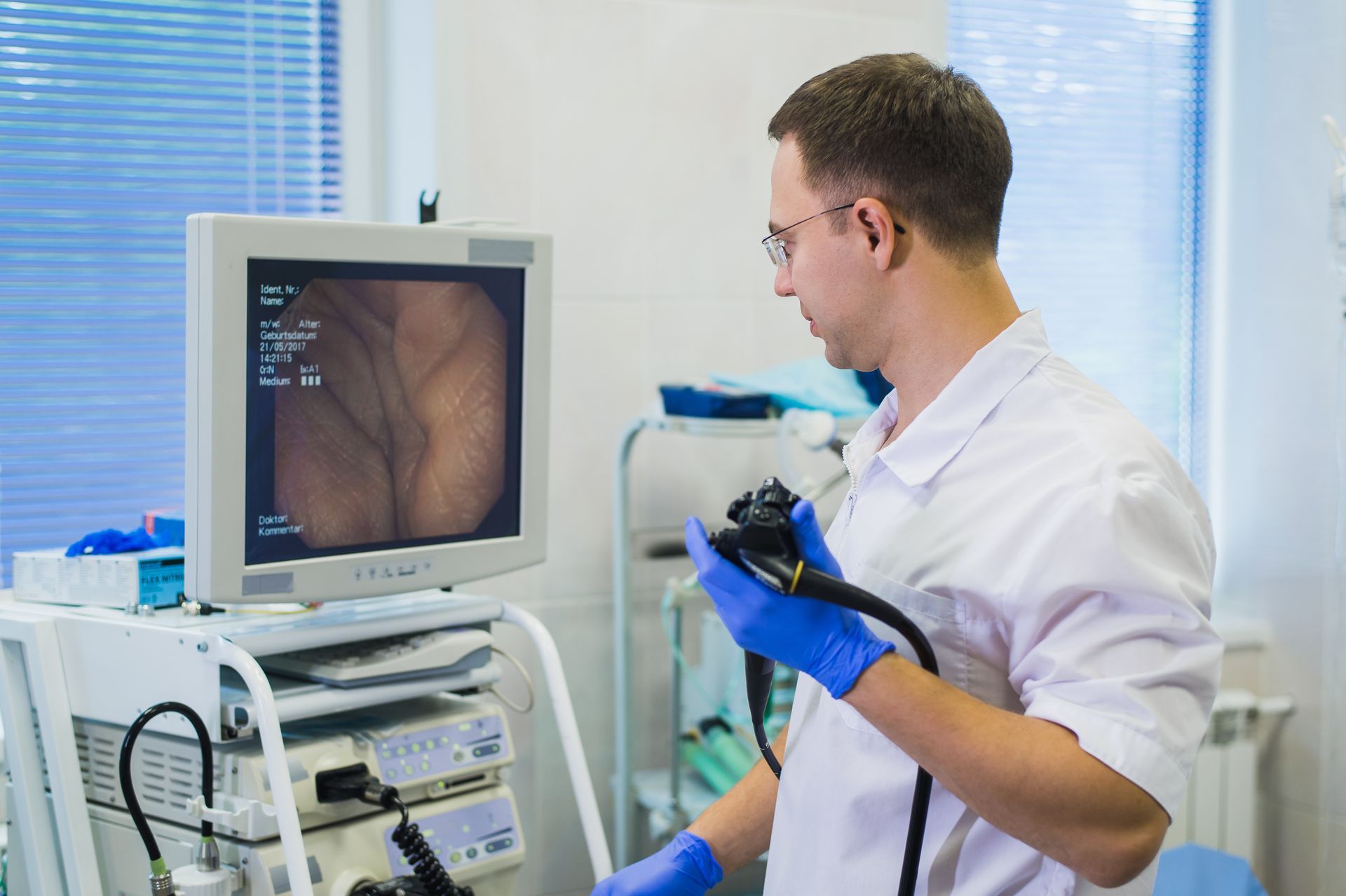Peptic Ulcers: Symptoms and Treatment
An open sore that develops on your stomach’s inside lining and the upper portion of your small intestine is called a peptic ulcer. Duodenal ulcers in the small intestine’s upper portion and gastric ulcers inside the stomach are also peptic ulcers.
What are the Symptoms of Peptic Ulcers?
Recognizing if you suffer from any of these gastroenterological ailments can be a challenge. Many people that have developed peptic ulcers are asymptomatic, or show no signs of suffering from an ulcer. However, there are several symptoms that can point to the development of peptic ulcers. The most common peptic ulcer symptom is a dull pain in a concentrated area of the stomach. Other symptoms include:
- Acid Reflux
- Nausea
- Anemia
- Weight Loss
- Feeling Bloated
- Dark or Bloody Stools
What Causes Peptic Ulcers?
An infection caused by Helicobacter pylori (H. Pylori), a bacterium, is typically the most common cause of peptic ulcers. They occur when there is an imbalance in digestive fluids.. When pepsin and hydrochloric acids in the stomach and upper portion of the small intestine are out of balance, it creates an opportunity for ulcers to develop. The long term use of NSAIDs, ibuprofen is an example, as well as genetics can increase your risk of developing peptic ulcers.
A common misnomer about ulcers is that they can be caused by stress or eating too much spicy food. These two variables can’t create an ulcer, however, once an ulcer develops both stress and spicy food can aggravate it. Habits like smoking and drinking alcohol will also exacerbate the effects of an ulcer.
How Do You Treat Peptic Ulcers?
To treat an ulcer you need to treat the cause of the ulcer. Treatment also includes getting its symptoms under control and preventing it getting worse. To address the most typical factor in ulcer development, H. Pylori, an antibiotic can be prescribed to stop the bacteria.
Typically the next course of action will be to limit the production of gastric acids. With medication like PPIs (proton pump inhibitors) the cells that produce your digestive fluids are blocked. Lansoprazole, rabeprazole, and omeprazole are all examples of PPIs. Other medical application may include H2 receptor blockers, these stop acid production, and probiotics to mitigate H. pylori.
Peptic ulcers are treatable and relief can be achieved with the proper care from a gastroenterologist. If you suffer from any of the symptoms mentioned above, or any other type of digestive issue, the expert staff at Digestive Diseases Center in Panama City, Florida is here to help.
CONTACT
850-763-5409
ADDRESSES
4 LOCATIONS
204 E 19th Street, B, Panama City
12216 Panama City Beach Pkwy, D, Panama City Beach
4295 3rd Ave, Marianna
101 Good Morning St., 109B, Port St. Joe
Subscribe to our newsletter:
subscribe to our newsletter
We will get back to you as soon as possible.
Please try again later.



